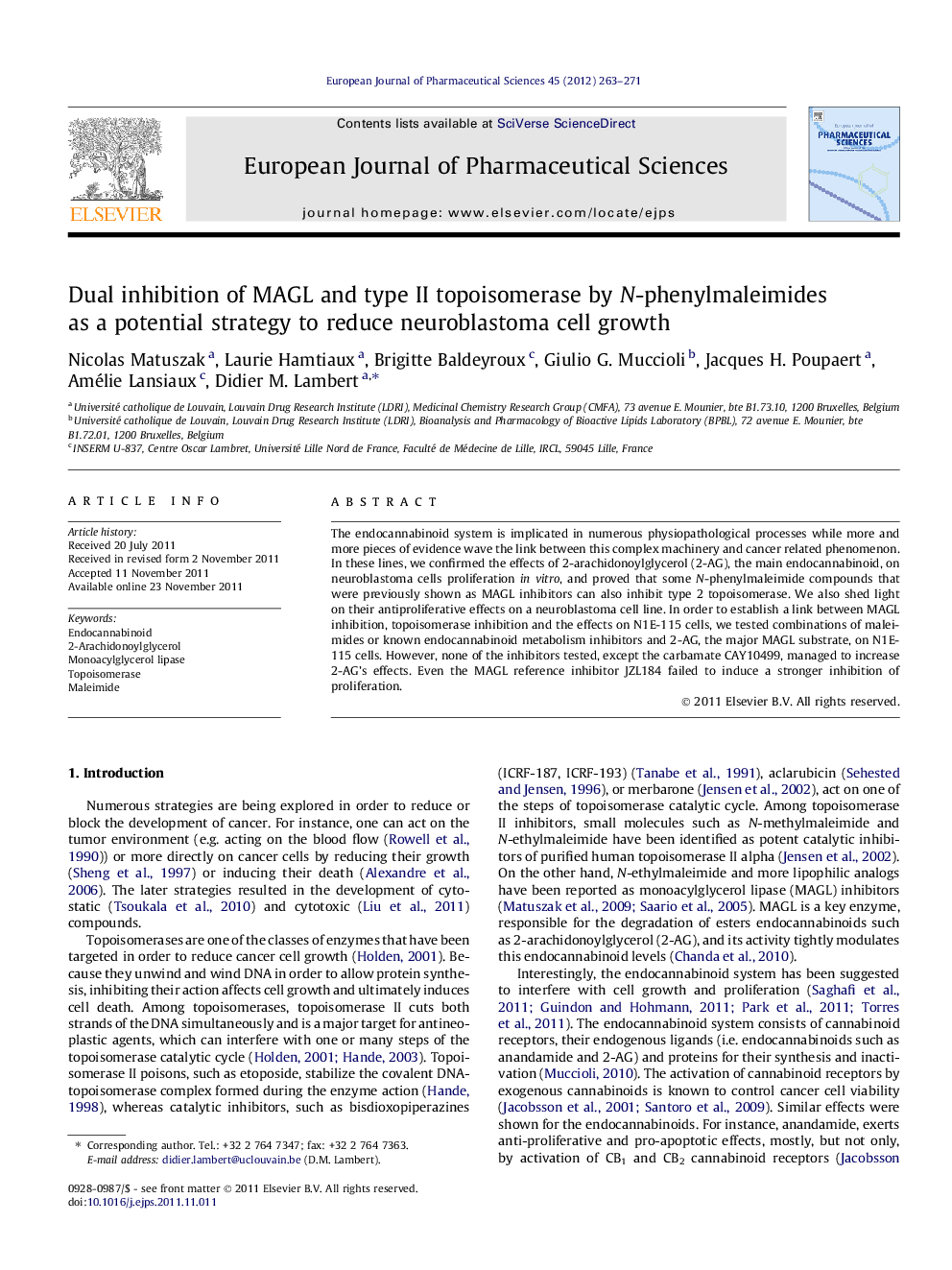| Article ID | Journal | Published Year | Pages | File Type |
|---|---|---|---|---|
| 2480766 | European Journal of Pharmaceutical Sciences | 2012 | 9 Pages |
The endocannabinoid system is implicated in numerous physiopathological processes while more and more pieces of evidence wave the link between this complex machinery and cancer related phenomenon. In these lines, we confirmed the effects of 2-arachidonoylglycerol (2-AG), the main endocannabinoid, on neuroblastoma cells proliferation in vitro, and proved that some N-phenylmaleimide compounds that were previously shown as MAGL inhibitors can also inhibit type 2 topoisomerase. We also shed light on their antiproliferative effects on a neuroblastoma cell line. In order to establish a link between MAGL inhibition, topoisomerase inhibition and the effects on N1E-115 cells, we tested combinations of maleimides or known endocannabinoid metabolism inhibitors and 2-AG, the major MAGL substrate, on N1E-115 cells. However, none of the inhibitors tested, except the carbamate CAY10499, managed to increase 2-AG’s effects. Even the MAGL reference inhibitor JZL184 failed to induce a stronger inhibition of proliferation.
